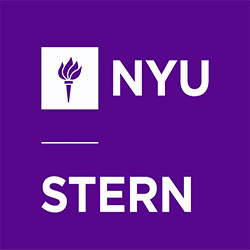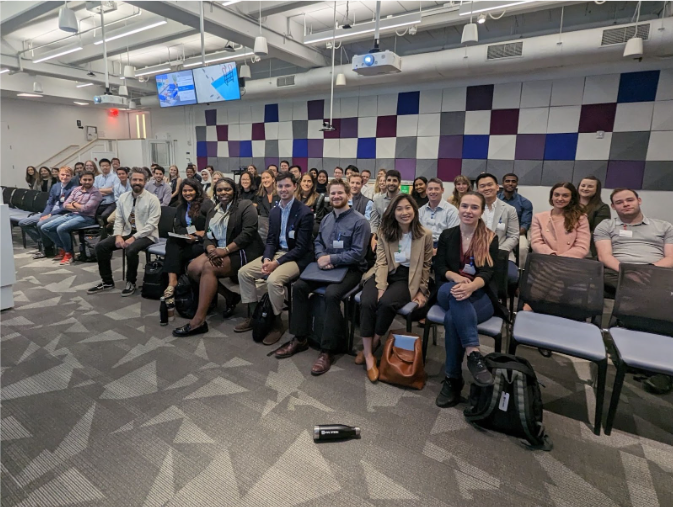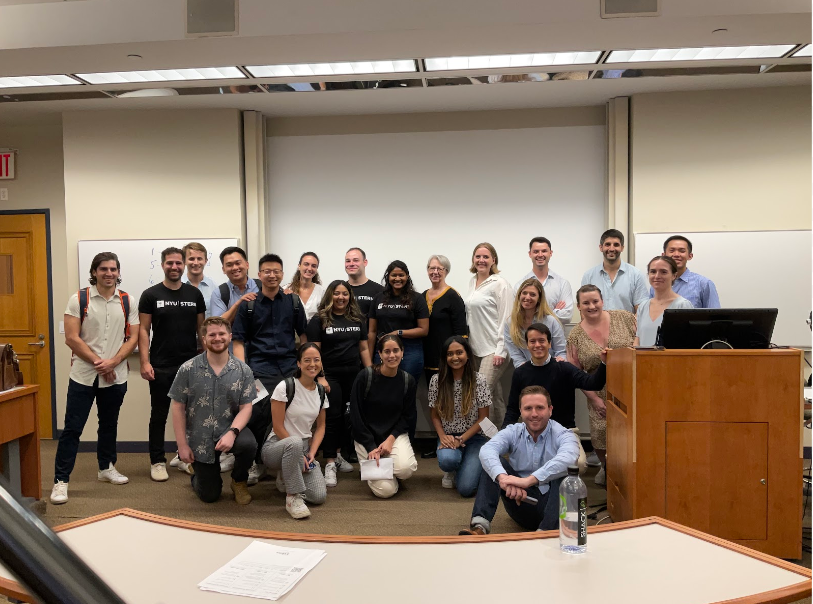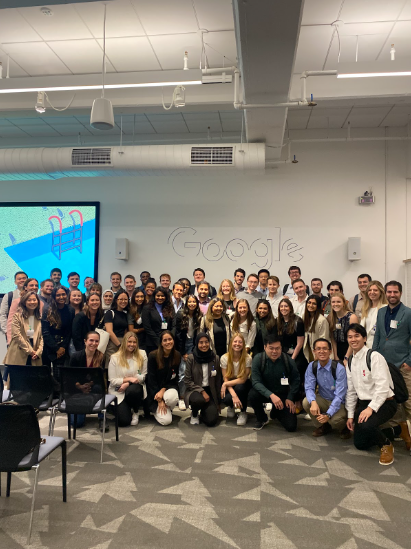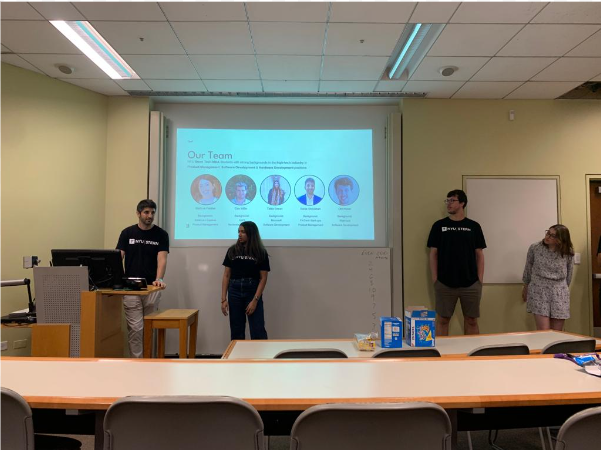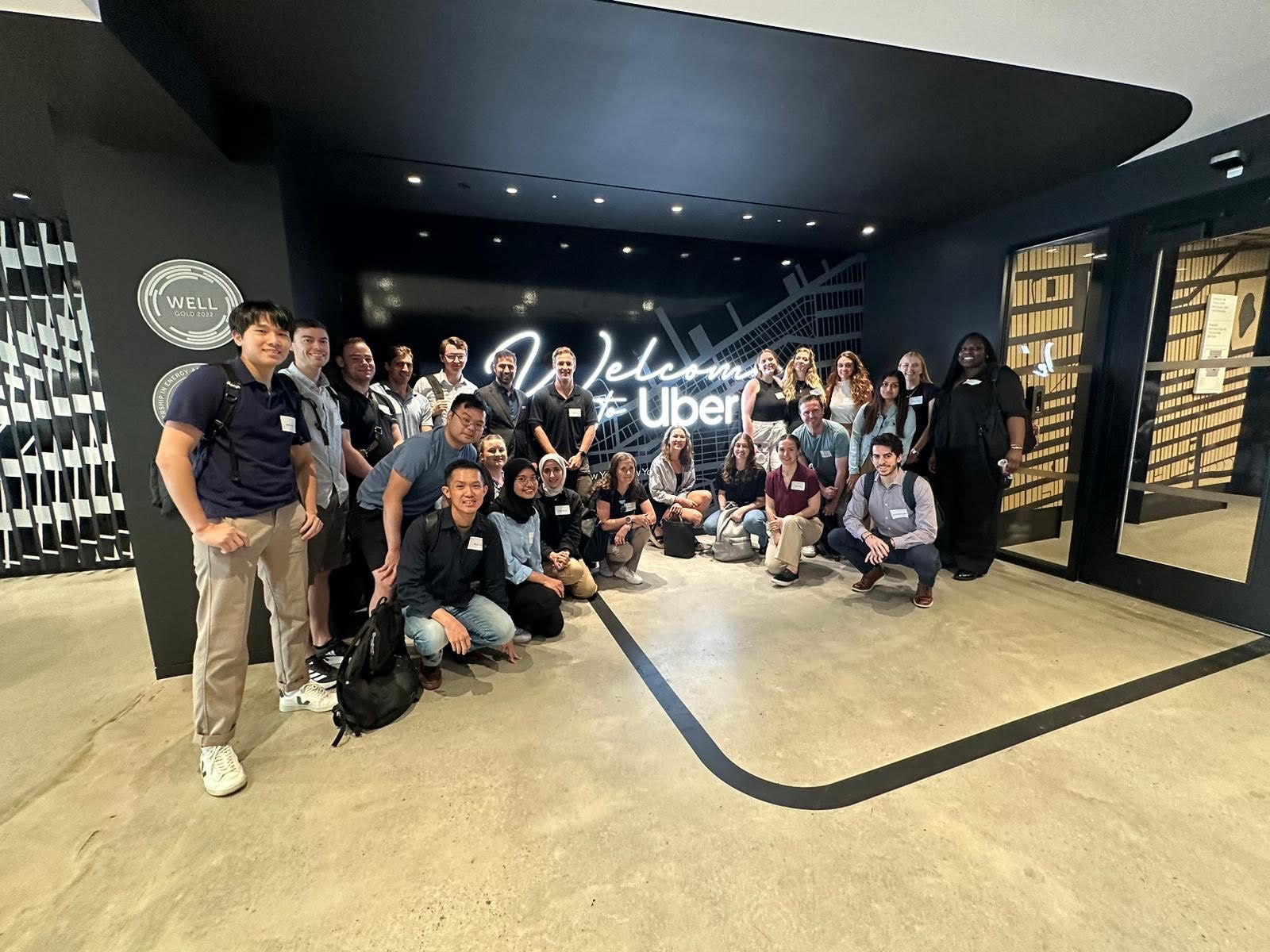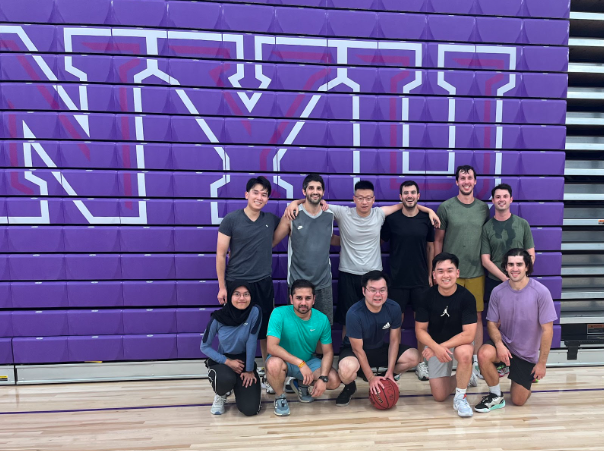 Vidisha is a current Tech MBA student, specializing in Tech Product Management. Prior to Stern, Vidisha was a Senior Consultant at West Monroe, leading digital transformation efforts for health and dental payers across the country. Post-MBA, she plans to pursue product management in the Health Tech space. At Stern, she is a Makhoul Family Leadership Fellow, involved in Stern Technology Association and Stern Women in Business, and enjoys taking dance classes and reading a good book in her free time.
Vidisha is a current Tech MBA student, specializing in Tech Product Management. Prior to Stern, Vidisha was a Senior Consultant at West Monroe, leading digital transformation efforts for health and dental payers across the country. Post-MBA, she plans to pursue product management in the Health Tech space. At Stern, she is a Makhoul Family Leadership Fellow, involved in Stern Technology Association and Stern Women in Business, and enjoys taking dance classes and reading a good book in her free time.
Navigating the MBA application process can feel like a daunting task. There’s a million different things to keep track of: soliciting recommendation letters, crafting genuine and compelling essays, fine-tuning your resume, securing your undergraduate transcripts – the checklist feels endless. Balancing all of these demands alongside your daily life can be quite the challenge, but staying organized and proactive can make things a lot less stressful.
Read on for some strategies for effectively managing the MBA application journey and some advice on how to tackle the Stern essay questions.
Be Your Own Project Manager
One of my first steps as I kicked off my application journey was organizing everything into an Excel spreadsheet. I logged each task along with its deadline, estimated time commitment, and current status. It’s crucial to have a handle on all the pieces required for your applications and allocate sufficient time for each.
Reaching out early to your recommenders is important to give them ample time to compose their letters. And essays usually require several revisions before they are polished. Even seemingly minor tasks like obtaining your undergraduate transcript can eat up a couple of business days.
Do Your Research
It is essential to have a clear understanding of why you are drawn to a specific school and how it aligns with your professional and personal aspirations. As someone who is interested in pursuing a product management role post-graduation, I thoroughly researched the various opportunities Stern provided to help me achieve my goals.
I looked into courses such as Technical Product Management and DevOps and Software Engineering, learned more about the Tech Product Management Specialization, and spoke with current members of the Stern Technology Association. I was also keen on gaining hands-on experience building and launching a product so Stern’s experiential learning courses such as Tech Solutions and West Coast Immersion really caught my eye. Furthermore, I was interested in exploring my entrepreneurial interests during my MBA, so NYU’s start-up accelerator, Endless Frontier Labs, was also something I dug into.
While there are ample resources online, the most valuable advice often comes from engaging with current students and alumni who share similar interests and career goals. I highly recommend reaching out to these individuals, as they are always willing to provide invaluable insights and guidance to prospective students.
Craft Your Story
Developing an engaging narrative, your “why” for pursuing an MBA at this point in your career, is a key part of the application process. The best stories are the most authentic, so don’t hesitate to let your genuine passions shine through!
I found it helpful to identify a couple of anecdotes or themes from my life that have really shaped who I am. I then explored how these personal experiences connected with my professional aspirations. I actually really enjoyed the reflective nature of this process and felt like I gained valuable insight into what I truly seek in the next phase of my professional journey and personal growth.
Revise, Revise, Revise
Your first draft is never going to be your best draft. Once I had a solid foundation for what I wanted to say in my essays, I invested a significant amount of time seeking input from trusted friends, especially those that had gone through the MBA application process before, and refining my writing. Often, something that sounded perfect in my mind didn’t convey the precise message I intended, so it was helpful to get another set(s) of eyes on my work so I could gauge how the admissions committee would perceive my words.
Specific Advice for the Stern Application
Stern’s MBA application stood out compared to many others, as it offered more of an opportunity to express my creativity. Here’s some guidance on approaching the essay questions:
- Essay Question #1: Change: _____ it.
For this question, I really tried to reflect on what change meant to me. I aimed to select a tagline that not only resonated with an experience I had lived but also one I could plan to continue embodying through active involvement in Stern’s academic and extracurricular offerings.
Change: Chase it.
I chose “chase” for my verb to highlight my belief that you must proactively seek opportunities to build the life of your dreams. I described how I had previously demonstrated my commitment to actively seeking new ways to challenge myself and grow as a leader and how I plan to continue doing so during my time at Stern. I even mentioned specific courses and extracurriculars I was interested in participating in that aligned with my growth goals.
More than the actual verb you choose, what matters most is the “why” behind that choice and how effectively you can convey that rationale through your past experiences and future aspirations.
- Essay Question #2: Personal Expression (a.k.a. “Pick Six”)
This question quickly became my favorite to put together! It can seem very broad at first, so I started off by making a list of things that were important to me. This can be anything from influential people in your life, your favorite hobby, your life philosophy, to things you are passionate about personally and/or professionally. From there, I narrowed my list down to 6 and tried to find a photo or image that best captured each of those concepts. Personally, I drew from my camera roll, but you have a wide array of options, including photos, infographics, drawings, collages, or any visual medium that resonates with you.
I chose to highlight (1) the importance of family in my life, (2) my obsession with books, (3) my passion for learning and performing new dance styles, (4) a creative venture I started with my sisters, (5) my love for adventure and travel, and lastly, (6) my aspirations to develop innovative solutions to address healthcare challenges.
Keep in mind that your caption can only be a sentence long and this is another good opportunity to gut check with a friend that the image you chose does indeed convey the meaning you intend it to. Have fun with this one! It’s a great way to add some more color to your application (literally) and highlight what makes you, you!
As you embark on this journey, remember that it’s not solely about perfecting your professional persona; it’s also about showcasing your individuality and what sets you apart. Don’t underestimate the significance of introspection and creativity in this process; they can be your most powerful allies.
And enjoy the ride! It’s a chance to not only gain admission to a prestigious institution but also to embark on a transformational experience that will shape your future in profound ways. Best of luck as you take the next steps towards your MBA dreams!
